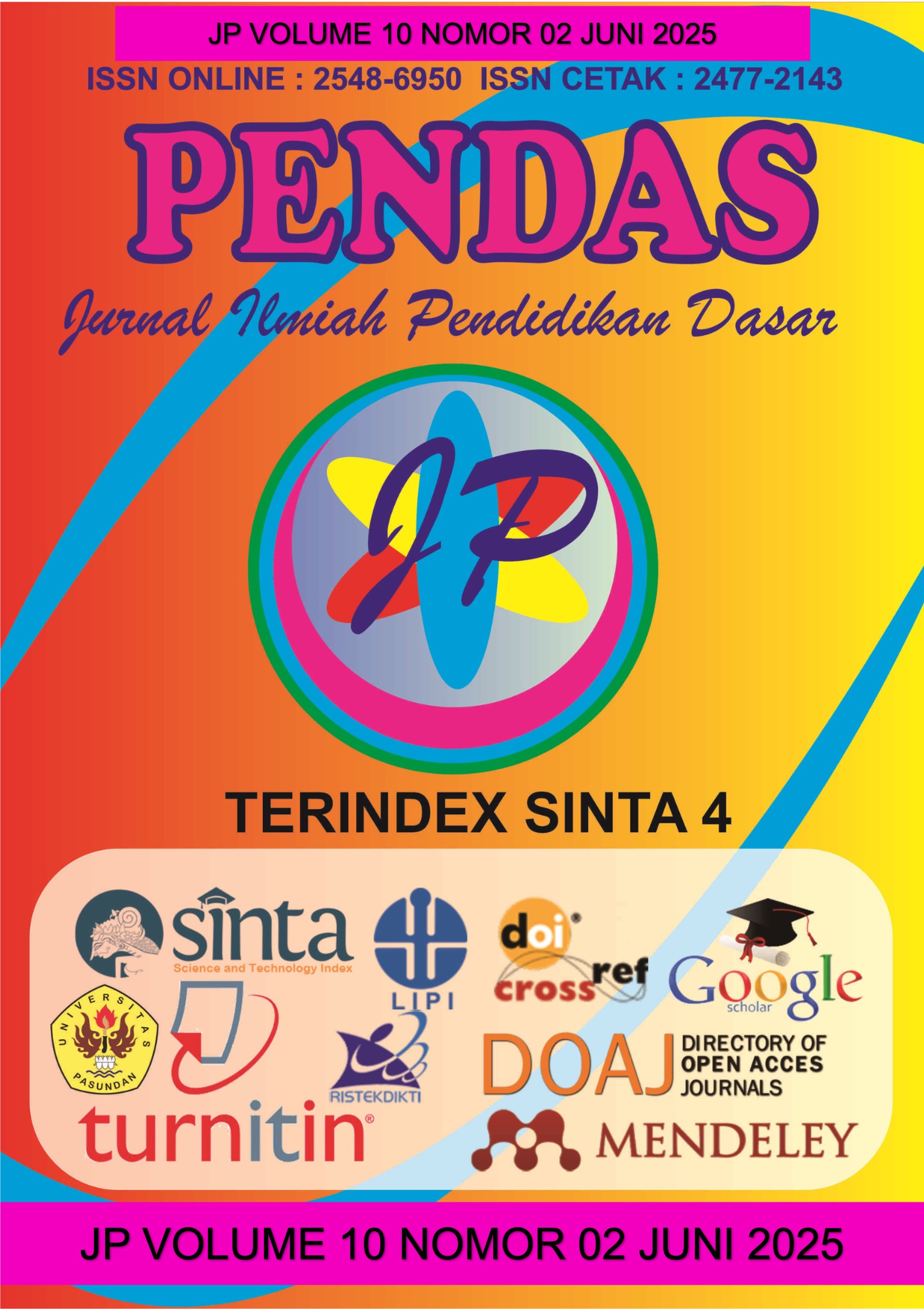MANAJEMEN PENDIDIKAN KEWIRAUSAHAAN DALAM MENUMBUHKAN JIWA KEMANDIRIAN SANTRI DI PONDOK MODERN DARUSSALAM GONTOR KAMPUS 7
DOI:
https://doi.org/10.23969/jp.v10i02.24206Keywords:
ntrepreneurship Education, Pesantren, Student IndependenceAbstract
This study aims to explore the management of entrepreneurship education in fostering the spirit of independence among students at Pondok Modern Darussalam Gontor Campus 7. The background of this research stems from the growing importance of entrepreneurship in Islamic educational institutions to enhance students’ economic self-sufficiency and leadership abilities. The research focuses on the planning, implementation, and evaluation of entrepreneurship education programs within the pesantren environment. This qualitative study employs a case study approach, using data collection techniques such as observation, in-depth interviews, and documentation, with purposive sampling applied to select participants including students, teachers, and pesantren administrators who are directly involved in the entrepreneurship program. Data analysis was conducted through thematic analysis. The findings reveal that the entrepreneurship education program at Gontor Campus 7 is integrated with Islamic values and is implemented through structured student-managed business units such as cooperatives, cafeterias, and laundry services. These activities provide real-life business experience that fosters independence, responsibility, and critical thinking. However, challenges were identified in terms of planning specificity, organizational clarity, and the effectiveness of motivation systems. The study concludes that a comprehensive and adaptive management model, which aligns with local needs and religious values, is essential to effectively cultivate entrepreneurial spirit and student independence. The results contribute to the development of effective management strategies for entrepreneurship education in religious boarding school contexts.
Keywords: entrepreneurship education, pesantren, student independence
Downloads
References
Bandura, A. (1997). Self-efficacy: The exercise of control. W H Freeman and Company.
Biggs, J., & Tang, C. (2011). Teaching for quality learning at university: What the student does (4th ed.). McGraw Hill.
Braun, V., & Clarke, V. (2006). Using thematic analysis in psychology. Qualitative Research in Psychology, 3(2), 77-101.
Cholil, M. (2018). The role of Islamic values in shaping entrepreneurial ethics and independence of santri in Indonesian Islamic boarding schools. Journal of Islamic Economics, Finance and Banking, 2(1), 27-40.
Creswell, J. W., & Poth, C. N. (2018). Qualitative inquiry & research design: Choosing among five approaches (4th ed.). SAGE Publications.
De Clercq, D., Honig, B., &дный, М. (2013). The impact of early-stage entrepreneurial experiences on later entrepreneurial engagement: The moderating roles of entrepreneurial knowledge and risk perception. Small Business Economics, 40(4), 867-883.
Deci, E. L., & Ryan, R. M. (2000). The “what” and “why” of goal pursuits: Human needs and the self-determination of behavior. Psychological Inquiry, 11(4), 227-268.
Gibb, A. A. (2002). Creating conducive environments for learning and entrepreneurship: A focus on policy and practice. Industry and Higher Education, 16(3), 135-147.
Kuratko, D. F. (2005). The emergence of entrepreneurship education: Developments, trends, and challenges. Entrepreneurship Theory and Practice, 29(5), 577-597.
Lincoln, Y. S., & Guba, E. G. (1985). Naturalistic inquiry. SAGE Publications.
Miles, M. B., Huberman, A. M., & Saldaña, J. (2014). Qualitative data analysis: A methods sourcebook (3rd ed.). SAGE Publications.
Neck, H. M., Greene, P. G., & Brush, C. G. (2017). Teaching entrepreneurship: A practice-based approach. Edward Elgar Publishing.
Obschonka, M., Silbereisen, R. K., & Schmitt-Rodermund, E. (2017). Entrepreneurial intention as developmental outcome. Journal of Vocational Behavior, 98, 152-163.
Pittaway, L., & Cope, J. (2007). Entrepreneurship education: A systematic review of the evidence. International Small Business Journal, 25(5), 479-510.
Rae, D. (2007). Connecting enterprise and learning in higher education: The development of an entrepreneurial graduate. Education + Training, 49(1), 6-20.
Shane, S., & Venkataraman, S. (2000). The promise of entrepreneurship as a field of research. Academy of Management Review, 25(1), 217-226.
Stake, R. E. (1995). The art of case study research. SAGE Publications.
волокна, Н. С., волокна, А. Н., & волокна, О. Н. (2012). The impact of student involvement in school cooperative organizations on entrepreneurial attitudes and behaviors. Journal of Cooperative Studies, 45(1), 25-38.
Yin, R. K. (2018). Case study research and applications (6th ed.). SAGE Publications.
Zhao, H., Seibert, S. E., Hills, G. E., & Luo, D. (2005). The mediating role of self-efficacy in the development of entrepreneurial intentions. Journal of Applied Psychology, 90(6), 1265-1272.
Downloads
Published
Issue
Section
License
Copyright (c) 2025 Pendas : Jurnal Ilmiah Pendidikan Dasar

This work is licensed under a Creative Commons Attribution 4.0 International License.














































